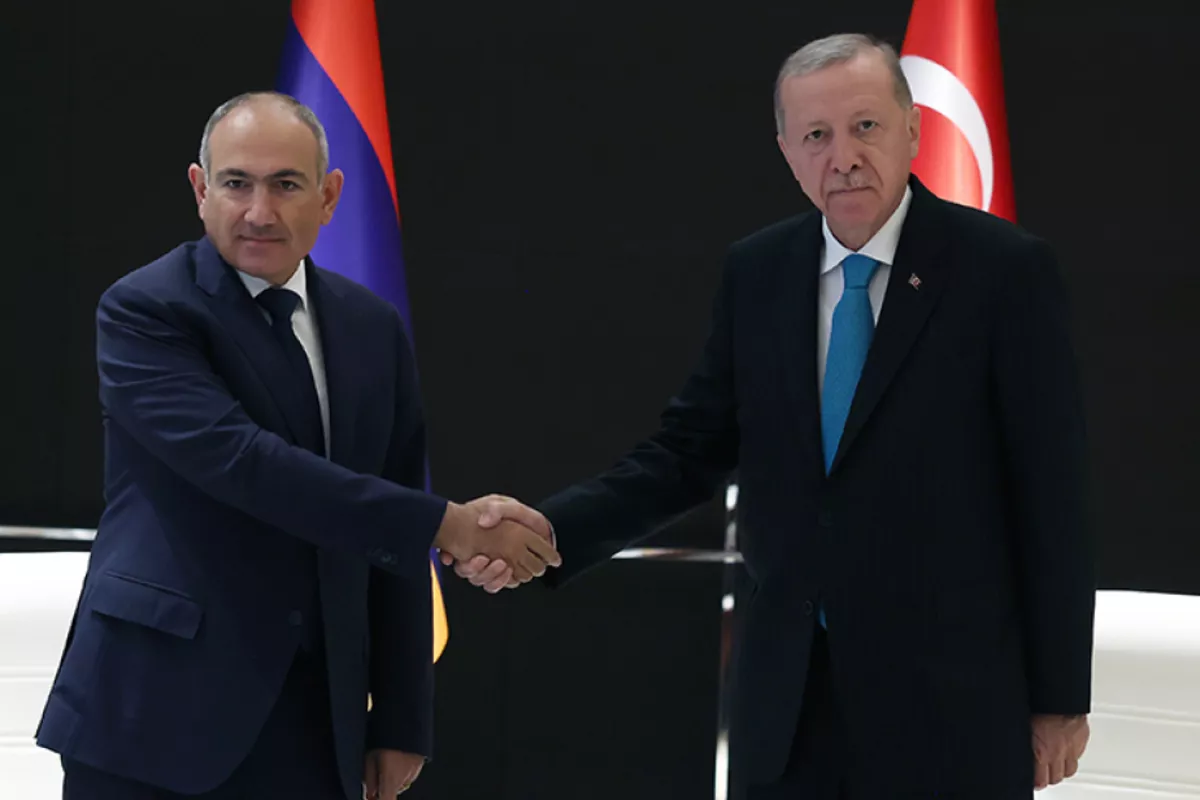
Photo credit: Reuters
Armenian Prime Minister Nikol Pashinyan said on Saturday that Armenia hopes to establish a road connection with Türkiye in the near future, a move that could signal a step toward reopening borders that have been closed since 1993 amid ongoing normalization efforts.
Speaking at a congress of his Civil Contract Party, Pashinyan highlighted Armenia’s ongoing efforts to normalize relations with its neighbors and strengthen regional stability, The Caspian Post reports citing Turkish media.
He noted that the peace process with Azerbaijan has ushered in a “completely new stage in history,” pointing out that no Armenian soldiers have been killed or injured along the Armenia-Azerbaijan border for the past 19 months.
Pashinyan stressed that peace is a bilateral process, saying, “To reach results, it is necessary to examine the key moments of the previous period; otherwise, history remains incomplete.”
On relations with Türkiye, Pashinyan emphasized ongoing active dialogue. “This dialogue gives us confidence that in the near future we will have road connections with Türkiye and, consequently, with the European Union,” he said.
The Armenian congress also adopted a declaration outlining the party’s future plans, including a 2026 parliamentary election bid and a proposed referendum to approve a new constitution.
The declaration reaffirmed Armenia’s commitment to internationally recognized borders, balanced foreign policy, EU integration efforts, and maintaining peace and good-neighborly relations with all countries in accordance with sovereignty and territorial integrity principles.
The declaration follows broader calls by Pashinyan to tone down nationalist language in Armenia’s political framework, including its constitution. The current Constitution, adopted in 1990 before Armenia’s independence from the Soviet Union, refers to eastern Türkiye as “Western Armenia” and Karabakh, which belongs to Azerbaijan, as “Armenian territory.”
Türkiye and Armenia have no diplomatic relations, and their shared border has been closed since the early 1990s. Both sides have engaged in cautious normalization talks in recent years, with Ankara welcoming signals from Yerevan that emphasize regional peace and cooperation.
Last week, Turkish and Armenian delegations met on the border for the sixth round of normalization talks. The sides agreed to pursue normalization without preconditions and agreed to step up the process of opening border crossings. They also decided to boost cultural and academic cooperation, including scholarships for students and joint restoration of the historic Silk Road (Ani) Bridge. In addition, they agreed to facilitate work for new airlines to launch flights next summer, aiming to expand air travel and connectivity between the two countries.
The neighbors share a complex history. Armenia, for a long time, has accused Türkiye, or rather, the Ottoman Empire, of committing "genocide" against the Armenian population in the country during World War I. Türkiye has repeatedly denied the claims, although it has acknowledged a high number of deaths among Armenians due to isolated incidents and diseases.
Borders have remained closed since 1993 following Armenia’s illegal occupation of the Azerbaijani territory of Karabakh. Relations began to thaw after the 2020 Karabakh war, with both sides appointing special envoys to pursue normalization talks and negotiating the reopening of their land border. So far, limited agreements have allowed third-country citizens and diplomats to cross, but a full reopening remains elusive.
Share on social media